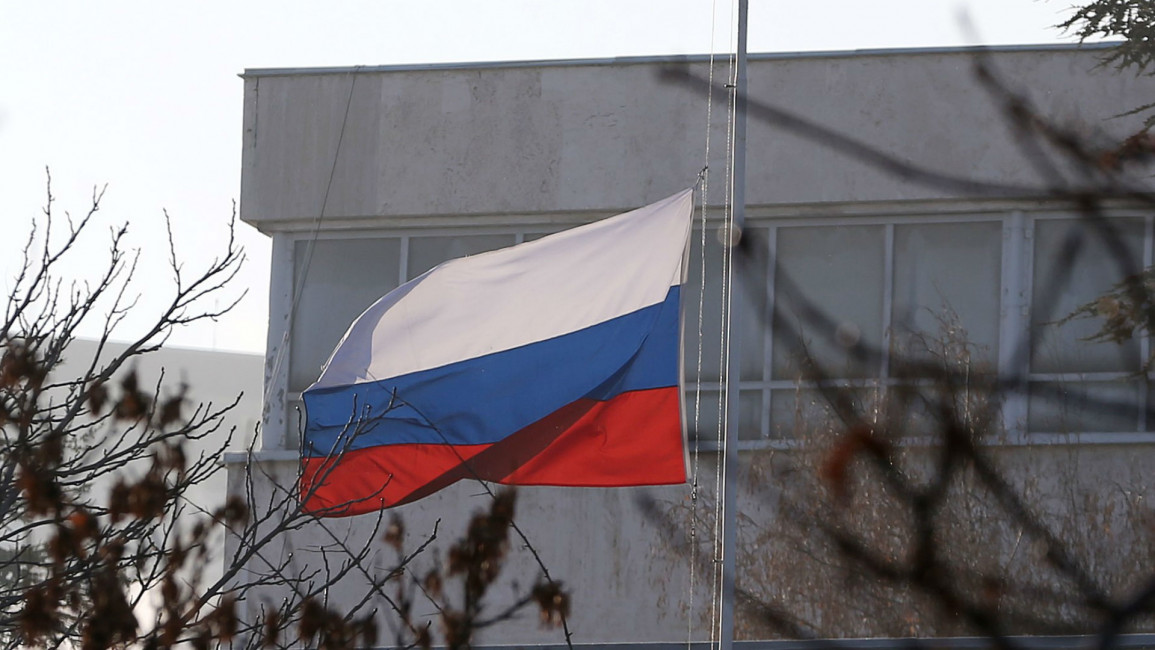Russian embassy in Damascus struck by mortar attack
Russian embassy in Damascus struck by mortar attack
Moscow's ministry condemned the attack adding that none of its staff at the embassy were harmed.
2 min read
Russia's embassy in Syria was also attacked earlier in July [Anadolu illustrative image]
Russia's embassy compound in Damascus was struck by a mortar attack on Wednesday, the foreign ministry in Moscow said in a statement.
The ministry condemned the attack adding that none of its staff at the embassy were harmed.
One of the shells exploded close to the compound's outside perimeter, while another two exploded within the confines of the diplomatic mission's grounds.
Russia, which has militarily backed the brutal Syrian government of Bashar al-Assad has in recently seen its diplomatic mission become the target of a number of attacks.
The embassy was targeted by a similar attack earlier this month, when one mortar shell hit the building's compound and another landed outside its perimeter.
Russia called for UN Security Council member states to condemn the most recent attack, while vowing to continue its "uncompromising battle against terrorists in Syria."
The attack comes amid reports that Russia is suffering increased losses in its Syria campaign, according to Reuters.
The London-based news agency estimates that the number of Russian servicemen killed fighting in Syria so far this year could be as high as 40, putting the death toll at four times higher than official government figures.
The Syrian conflict began when the Baath regime, in power since 1963 and led by President Bashar al-Assad, responded with military force to peaceful protests demanding democratic reforms during the Arab Spring wave of uprisings, triggering an armed rebellion fuelled by mass defections from the Syrian army.
According to independent monitors, hundreds of thousands of civilians have been killed in the war, mostly by the regime and its powerful allies including Russia.
Millions have been displaced both inside and outside of Syria. The brutal tactics pursued mainly by the regime, which have included the use of chemical weapons, sieges, mass executions and torture against civilians have led to war crimes investigations


![President Pezeshkian has denounced Israel's attacks on Lebanon [Getty]](/sites/default/files/styles/image_684x385/public/2173482924.jpeg?h=a5f2f23a&itok=q3evVtko)



 Follow the Middle East's top stories in English at The New Arab on Google News
Follow the Middle East's top stories in English at The New Arab on Google News


